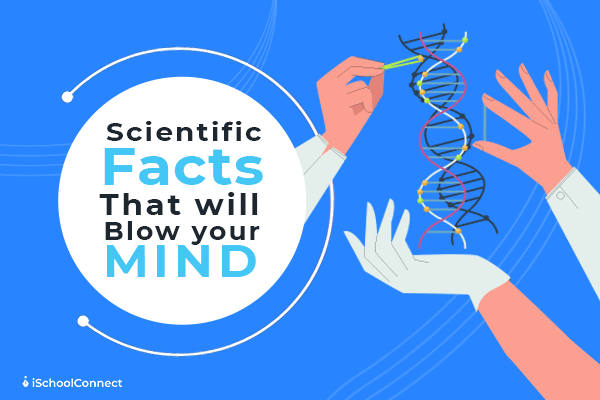Table of Contents
Science is everywhere. Even if you are someone who is not particularly thrilled by the subject, you will be amazed to know what science can actually accomplish. It does not only help solve some of the world’s most pressing problems but helps us learn a great deal about the world we live in. Let’s take a look at some amazing facts about science to know how they’ve contributed to the growth in research.
Physics
Physics is the discipline of science that studies the structure of matter and the workings of the universe’s fundamental elements. It uses quantum physics to study items as tiny as atoms and general relativity to study the whole cosmos.
Nuclear physics
- Nuclear physics explains how the elements are created, including what happens in the sun and other stars, how they receive their energy, and the occurrences on these planets.
- Enriched uranium is a key component to produce both nuclear weapons and nuclear electricity.
Astronomy/Astrophysics
- The Sun’s core emits enough energy to power 100 billion nuclear bombs each second.
This energy from the sun’s core travels hundreds of years through the layers of the sun before being released as heat and light to power the solar system.
- The black hole in the heart of the Milky Way galaxy has millions times more mass than that of the Sun.
- Because of the Greenhouse Effect of its atmosphere, Venus has the warmest surface temperature that is 880 degrees Fahrenheit (471 °C)
Thermodynamics
- A way to achieve net-zero harmful emissions during energy consumption is to use hydrogen.
- Both iron and aluminium were more expensive than gold before the invention of the new thermal techniques.

Chemistry
Chemistry involves studying the structure, composition, and characteristics of matter. It is a discipline that deals with atomic and molecular structure and its modification. Let’s take a look at some more interesting facts related to science.
Inorganic Chemistry
- Every hydrogen atom in your body is potentially 13.5 billion years old since they were created at the beginning of the universe.
Organic Chemistry
- Synthetic dyes derived from organic molecules can be used instead of using plants as a source of dye.
Biology

Biology is a field of science that studies living creatures and the processes that keep them alive. Ecology, evolution, microbiology, molecular biology, botany, conservation, genetics, marine biology, medicine, physiology, and zoology are all branches of biology. Let’s take a look at some of the biology science facts.
Medical
- Babies are born with around 300 bones, however, these bones will have fused to create 206 bones by the time they reach maturity. Babies tend to have more cartilage than bone at the time of their birth.
- Crying out your feelings can help you with good health. Tears include stress chemicals, and weeping may increase the synthesis of endorphins, the body’s natural painkiller, as well as feel-good hormones like oxytocin.
Biotech
- Human DNA is nearly identical in 99.9% of cases. The remaining 0.1% is responsible for all of the differences that distinguish each individual.
- About 98% of human genes are shared with chimps, 92% with mice, 76% with zebrafish, 51% with fruit flies, and 18% with E. coli bacteria.
Evolution
- Dinosaurs have descended from reptiles, and birds descended from them. The crocodile is the bird’s closest relative to reptiles that exist currently.
- Some snakes have hip bones, indicating that they formerly had four legs like their close relatives – lizards.
Microbiology
- The number of microorganisms in a living human is ten times more than the number of human cells.
- There are roughly 500 bacteria species in the human mouth.
What we have to say
Science is a strong tool for determining what is true and what isn’t. It can assist us in determining what works and what doesn’t, as well as for whom and under what conditions.
With the given career growth the pace at which the science stream progresses is unprecedented. As the applications and the requirement for science continue to grow, so does the scope for the professionals in the field. Apart from the conveniences that science facts bring about in your life, with more research and time it can help scratch the surface to reveal answers to long-standing questions.
Liked this blog? Read Psychology facts | 50 interesting facts you must know about!
FAQs
Q1. How many disciplines are there in Science?
Answer – There are 7 disciplines in science –
- Astronomy
- Ecology
- Chemistry
- Biology
- Geology
- Psychology
- Physics
Q2. Can science be wrong?
Answer – Yes, Mistakes are quite common in science and hence science too can lead to faulty findings
Q3. How to become a scientist/researcher?
Answer – Here are a few steps to become a scientist/researcher
- Obtain a bachelor’s degree.
- Complete a master’s degree.
- Gain experience.
- Pursue certifications.
- Consider a doctorate.






